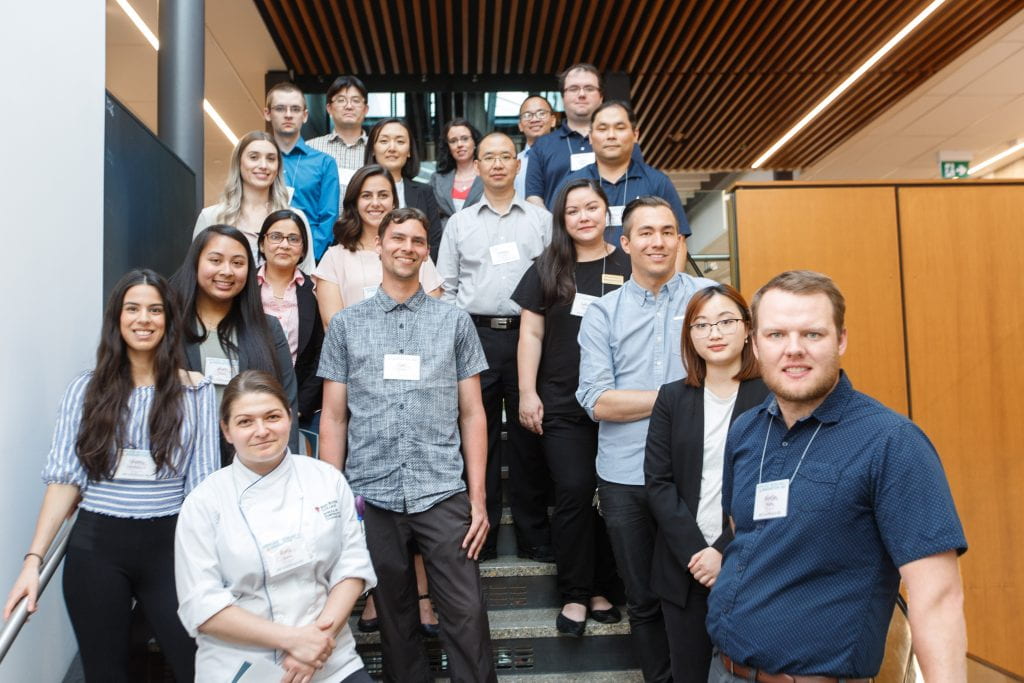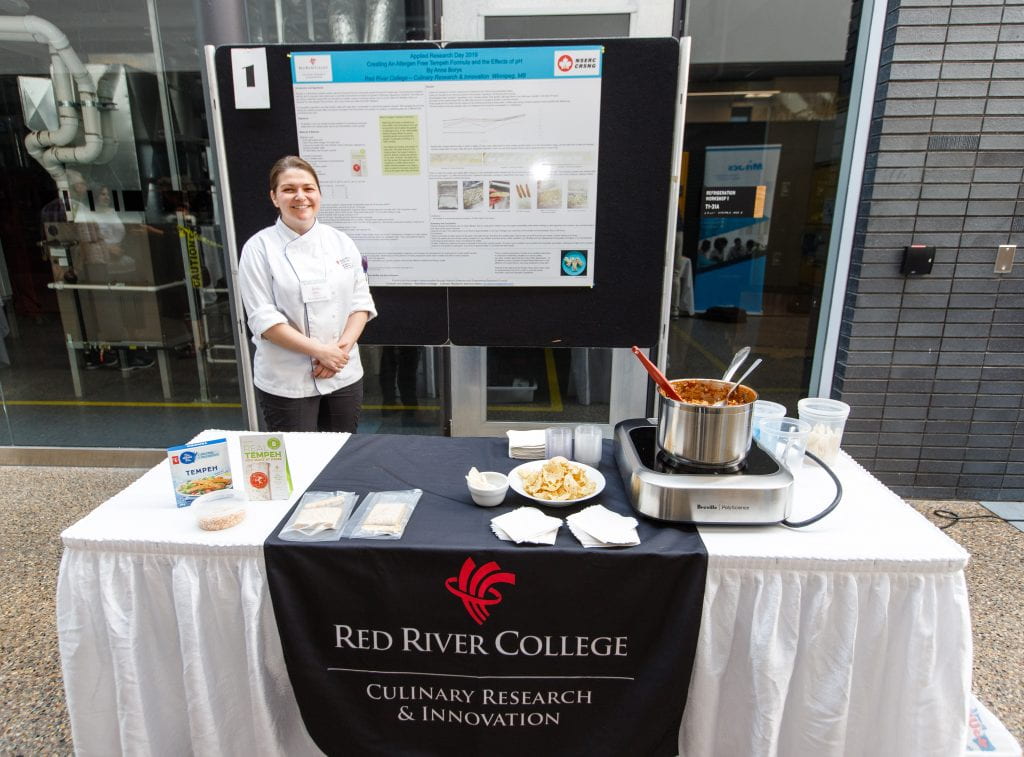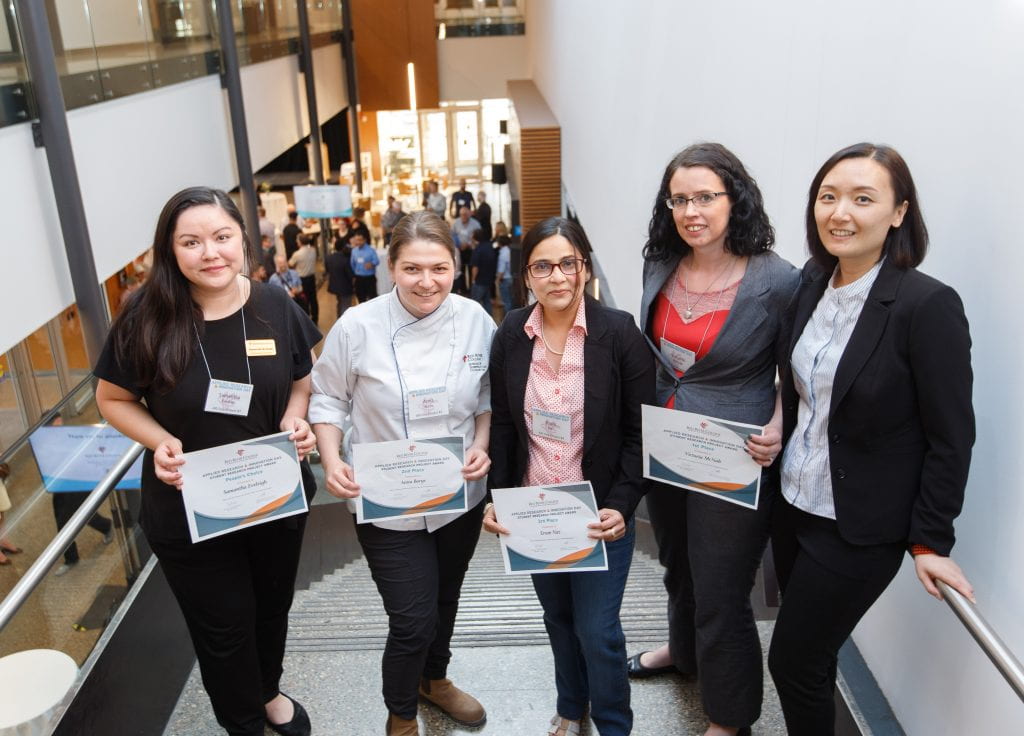Third-annual ARI Day shows future is bright for women in STEM
Red River College’s third-annual Applied Research & Innovation Day was a great success, with innovative student research projects running the gamut from smart technology, to plant-based proteins, to advancements in health and social sciences.
The event also demonstrated the future is bright for women in STEM (science, technology, engineering, and mathematics) – as women researchers took home the first, second, and third place prizes, as well as the people’s choice award. Here’s a look at their award-winning projects:
First Place:
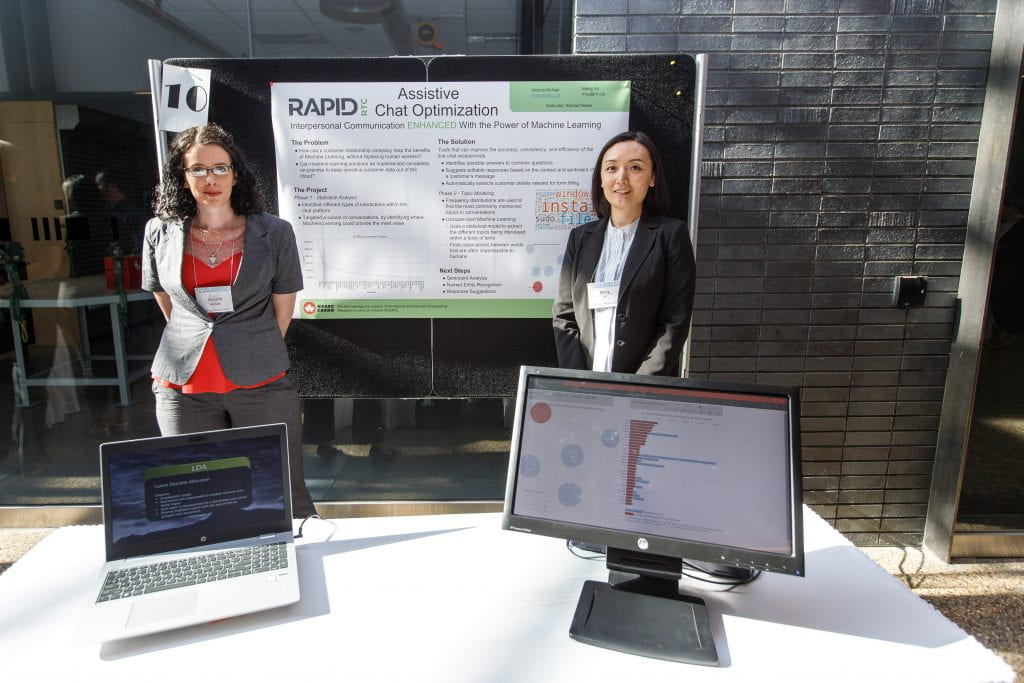 Natural Language Processing – Chatbot
Natural Language Processing – Chatbot
Student: Victoria McNab
School: Business and Applied Arts
Referred by: Randall Peters, Instructor – Business Information Technology
“This project aims to process millions of historical chat records, to develop an industry specific, assistive chatbot trained on this data using an offline environment, with no access to cloud computing resources. Rapid RTC provides online chat services to their customers, along with receptionist support. My goal is to use machine learning, and Natural Language Processing techniques to help the receptionists build better customer relationships by extracting the topics being discussed and analyzing the sentiment of the discussions. Using unsupervised machine learning, I applied the Latent Dirichlet Allocation algorithm to model the topics being discussed. In parallel, I applied statistical analysis techniques to manually determine topics, which gave me a result set to evaluate models against.”
Second Place:
Student: Anna Borys
School/Program/Class: Culinary Arts
Referred by: Mavis McRae – Culinary Research and Innovation
“Tempeh is traditionally made from hulled soy beans, the purpose of the project is to create a non-soy tempeh, using a different source of pulses. Initially, we used traditional methods to making a yellow pea tempeh, however resulted in substandard product. To get a product that more closely resembles a more traditional tempeh, we altered cooking and culture variables. Although no clients were initially incorporated into this project, the work is applicable to companies such as Manitoba Pulse and Soy Growers Association, Best Cooking Pulses, AGT, or Prairie Fava. Further work to optimize product to commercial standards would be required.”
Third Place:
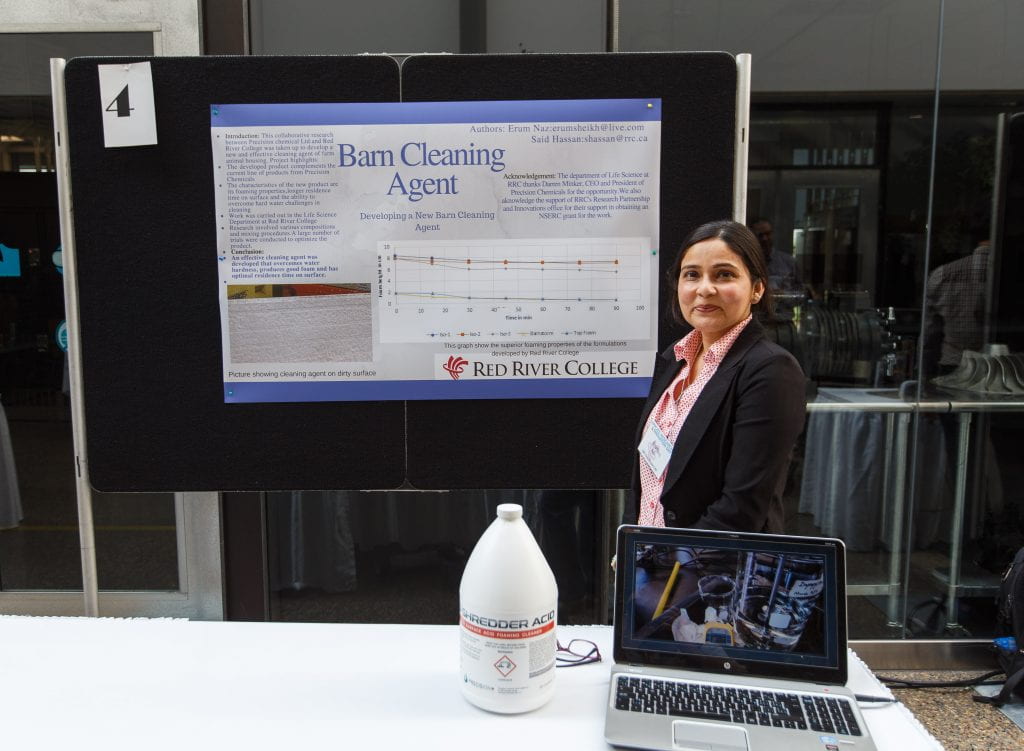 Acid-based Cleaning Solution for Animal Barns and Related Areas
Acid-based Cleaning Solution for Animal Barns and Related Areas
Student(s): Erum Naz
School/Program/Class: Health Sciences and Community Services
Referred by: Said Hassan, Instructor
“This project involved developing an acid based cleaning solution for use in animal barns and related areas. This project was conducted for our client Precision Chemicals a Manitoba company which is primarily in the business of developing innovative solutions to farming problems. Precision Chemicals markets an alkaline barn cleaning solution, Bioshredder. However, the company wanted to also market an acid base solution. This project started by investigating various emulsifying and foaming agents. The project then proceeded by making various formulations and trying them in simulated real life environment. Eventually a product meeting the client’s specifications was developed and is being tried in the field.”
People’s Choice:
Reducing Post-Stroke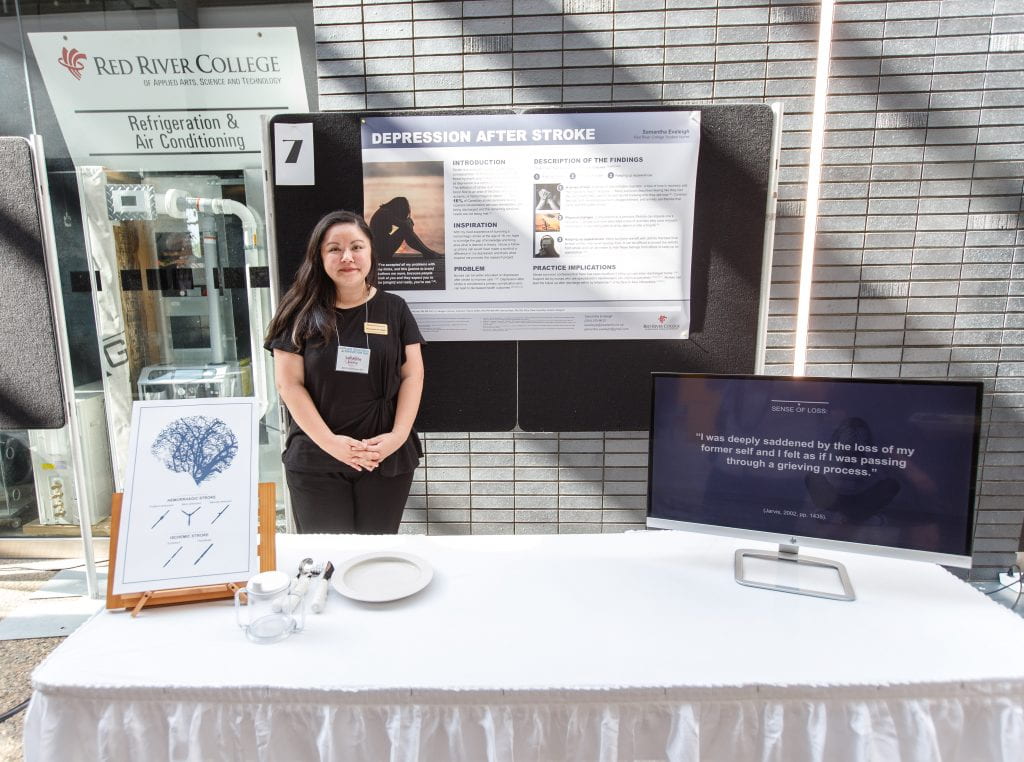 Depression
Depression
Student(s): Samantha Eveleigh
School/Program/Class: Research and Scholarship in Nursing
Referred by: Meagan Chorney, Patrick Griffith
“Depression after stroke is considered a primary complication and can lead to decreased health outcomes. Despite this, there are limited studies that describe the individual’s experience with depression. With my lived experience of surviving a hemorrhagic stroke at the age of 18, my hope is to bridge the gap of knowledge and bring alive what is learned in theory.
Recovery from a stroke reveals depression in both immediate and long-term phases that may require intervention that could be led by nurses. Support to manage symptoms of depression can be led by nurses who are specialized in neurosurgery by leading a follow up after discharge either by telephone or by face-to-face interactions.”
The top three winners were all NSERC-supported projects, while Victoria McNab’s Natural Language Processing Chatbot also received support through IRAP.

